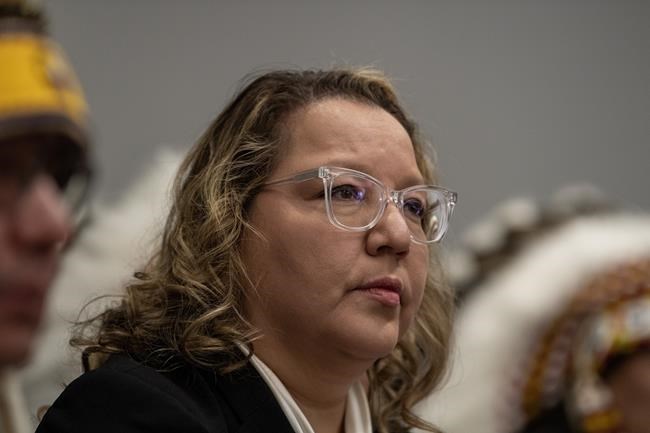OTTAWA — Decades of underfunding and failed fiduciary duties have already left a $349-billion infrastructure gap on First Nations that will get increasingly worse without immediate investments in everything from housing to roads to schools, a new report warned Tuesday.
The report, published by the The Assembly of First Nations, calls for $135 billion for housing, $5 billion for digital connectivity and another $209 billion for other infrastructure.
"Without these funds, infrastructure that First Nation communities across the country depend on will continue to deteriorate at an alarming pace," the report says.
"Without this investment, the health, safety, and community infrastructure of First Nations will be in worse condition with each passing year."
Prime Minister Justin Trudeau pledged to close the infrastructure gap by 2030, but the federal auditor general concluded earlier this year that when it came to housing it has only gotten wider.
Tuesday's report goes beyond housing, and includes water treatment plants, roads, schools and ports, among others.
The assembly, which advocates on behalf of more than 600 First Nations chiefs, says the cost will balloon if no action is taken now.
Explicitly describing itself as federal budget request, the report is the product of participation from 401 First Nations communities and is based on years of studies, engagements and records from Indigenous Services Canada.
“The 2024 federal budget must align with the priorities set forth by First Nations, including in this report,” said National Chief Cindy Woodhouse Nepinak, in a written statement.
“The Government of Canada must ensure that our voices are not only heard but are leading the conversation and action on matters that affect our communities directly. This includes ensuring significant investments that match what First Nations have deemed necessary for our future.”
The budget will be tabled on April 16.
The assembly says investing in First Nations infrastructure will help communities improve their self-determination and socioeconomic outcomes, and reduce the gaps between First Nations and Canadians.
But it also acknowledged inflation and rising construction and fuel costs could help complicate their infrastructure efforts. And as buildings continue to age, repairs will become all the more difficult.
Indigenous Services Minister Patty Hajdu, whose department helped pen the report, said Canada is still committed to closing infrastructure gaps in First Nations communities by 2030.
"I will say that in order for that to happen, all levels of government … will have to work together," Hajdu said.
"This is a big, big lift."
Ontario regional chief Glen Hare, whose jurisdiction needs $25.8 billion for housing, said community members are being forced to live in overcrowded housing because there's nowhere else for them to go.
"People should never be faced with the harrowing decision to choose between living in overcrowded, unsafe conditions, or leaving their family and community," Hare said.
From 2018-19 to 2022-23, Indigenous Services and the Canada Mortgage and Housing Corporation provided funding to build 11,754 new housing units, and to repair 15,859 existing units.
That represents about a fifth of what's needed in new builds and repairs to close existing gaps, Canada's auditor general Karen Hogan found in a report earlier this year.
She noted construction in communities can be challenging, especially if they're in rural and remote regions, which limits the construction season and available workers. The pandemic, too, introduced some delays to projects.
A lack of proper housing is associated with family violence, substance use, suicide and economic obstacles, Hogan said, and can contribute to a loss of culture if there are no housing options in communities, forcing migration.
"Time after time, whether in housing, policing, safe drinking water or other critical areas, our audits of federal programs to support Canada's Indigenous Peoples reveal a distressing and persistent pattern of failure," Hogan said at a press conference after the report's release.
"The lack of progress clearly demonstrates that the government's passive, siloed approach is ineffective, and, in fact, contradicts the spirit of true reconciliation."
This report by The Canadian Press was first published April 9, 2024.
Alessia Passafiume, The Canadian Press




